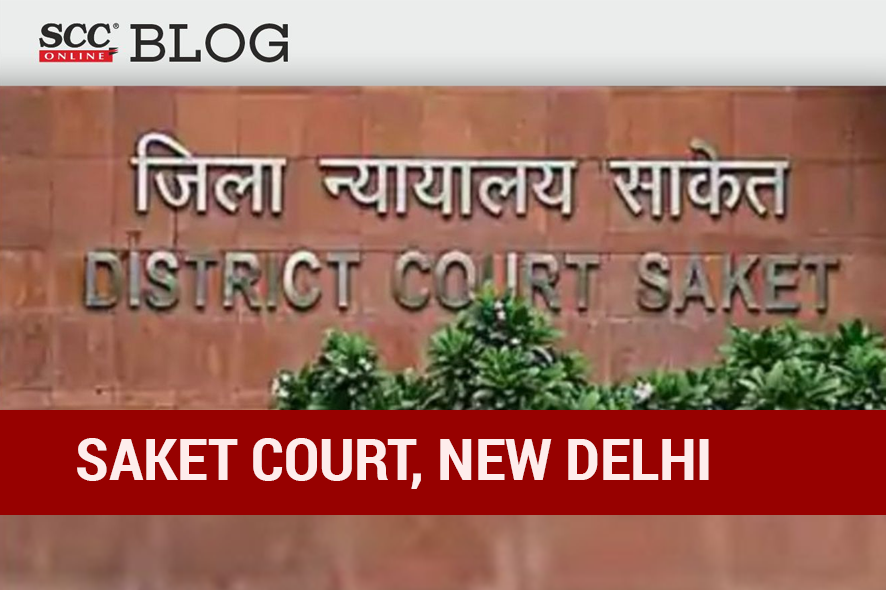Saket Court, New Delhi: In an offence under Sections 409, 420, 468, 471, 477-A of the Penal Code, 1860 (‘IPC’), Rishabh Tanwar. J. held that the prosecution has utterly failed to prove the offence under the said sections beyond the shadow of reasonable doubt against the accused, thus, the Court acquitted the accused.
In the case at hand, the accused was deputed as Assistant Manager of foreign exchange business of the company and was responsible for generating forex related business for the company.
The Court said that Section 409 of Penal Code, 1860 is a specie, and the genus of the offence can be located in the offence under Section 405 IPC, and to constitute the offence of criminal breach of trust, it is imperative that the prosecution must first prove that the accused was entrusted with property or with any dominion or power over the property. Secondly, it has to be established that the property was entrusted or the dominion was granted (a) in capacity of a public servant, (b) in the way of his business as banker, merchant, factor, broker, attorney or agent and lastly, it has to be established that in respect of the property so entrusted, there was a dishonest misappropriation or dishonest conversion or use or disposal in violation of a direction of a law or legal contract.
The Court said that the concept of agency under Section 409 IPC, in contradistinction with its civil corollary, cannot be given such a narrow interpretation. Further after placing reliance on R.K. Dalmia v. Delhi Admn., (1963) 1 SCR 253, where it was adequately established during the trial that accused was the sole repository of the key to the safe containing the forex reserve. Further, it was noted that merely because he was paid a salary and not a commission, would not take him out of the preview of being an agent.
Thus, the Court held that as the accused was responsible for generating forex related business for the company, he is squarely covered under the phrase ‘agent’ for the purposes of Section 409 IPC.
Further, the Court noted that to prove the offence under Section 409, the prosecution must also prove ‘entrustment’ and ‘misappropriation’ of funds on part of the accused and that it was done ‘dishonestly’.
Further, the Court examined the voluntariness of the confession of the accused made before the officials of the complainant company, and said that a person would not admit freely his wrongdoing, for he labors under a hopeless expectation till the last moment that somehow his wrongdoings will not surface, and he will not get caught. The confession must be caused by inducement, threat or promise. It also stated that the confession did not make any sense as if the amount was never received by the accused in his hands, then why would he write that the same has been misappropriated by him. Besides, the words used by the accused appear exactly what the complainant company would expect him to speak. Accused has not written anything about how and where he misappropriated the money and how he has embezzled the same. Thus, it was an involuntary confession, coerced out of the accused.
Thus, the Court held that the prosecution has miserably failed to prove misappropriation by the accused, thus no offence under Section 409 is made out against the accused.
Further, the Court said that to prove the offence under Section 468 IPC, it is substantive to prove that the accused committed forgery of document or electronic record for the purpose of cheating. The essential elements to prove the allegation under Section 471 are that the accused fraudulently or dishonestly used any documents or electronic record as genuine, and he knows or has a reason to believe that the said document is forged. is noted that no signatures were found on the alleged cash memos, and the only signatures and handwriting that were on the cash memos were of the accused himself and one cannot be held guilty for committing forgery by forging his own sign.
The Court noted that accused was authorized to make cash memos, hence he cannot be held liable for the offence of forgoing such memos as in making of those cash memos he never portrayed that the cash memos were made by someone else or under someone else’s authority. Therefore, there was no false document, thus there is no forgery. Thus, it was held that the accused cannot be held guilty under Sections 468 read with 471 IPC against the accused.
The Court further said that to prove the offence under Section 477-A, the prosecution must have proved that the accused had willfully and with an intention to defraud, falsify the books belonging to the complainant. While explaining the contradistinction between the terms ‘defraud’ and ‘dishonestly’, the Court after placing reliance on Union of India v. Rabinder Singh, (2012) 12 SCC 787, said that the term ‘dishonestly’ is only confined to wrongful loss or wrongful gain as per Section 24 IPC, the term defraud would mean any harm or injury to one’s body, mind, property or reputation. The Court, thus, held that the accused had no intention to defraud and cannot be said to have willfully falsified the accounts of the company.
Judgment by: Metropolitan Magistrate Rishabh Tanwar
[State v Harish Chandra, CNR No. DLSE02-002468-2017, decided on 28-02-2023]
Advocates who appeared in this case:
For the Accused: Advocate Pawan Reley, Advocate Akshay Lodhi.







